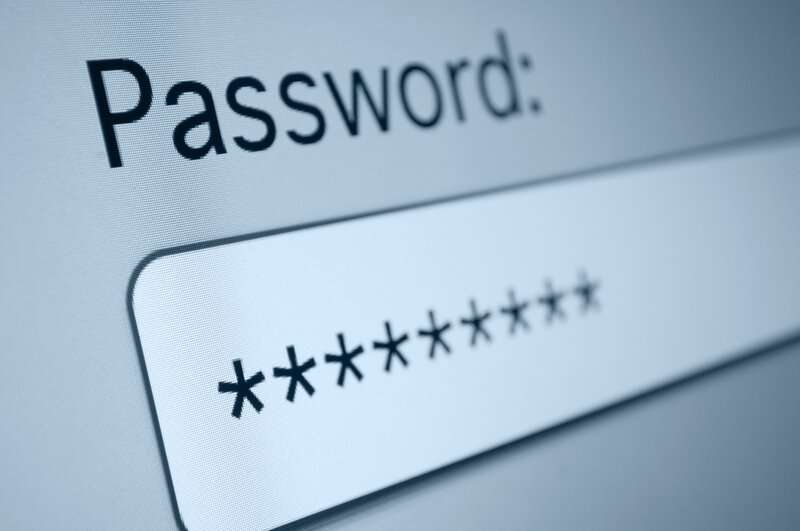
Data and identity thieves are sophisticated, but the weak spot in most security breaches remains the password. Cybercriminals who hack your password can use it against individuals and companies to steal money, spy, and blackmail.
If you are wondering, “How secure is my password?” read on.
Creating A Secure Password
Here is what you should know about creating a strong password or complex passphrase:
- Passwords should be at least 16 random characters long. Unfortunately, almost 50% of Americans rely on weak passwords of half the number of characters or less, making them easy for criminals to crack.
- Complex passwords mix digits, symbols, and letters, including uppercase letters.
- Each account should have a unique password. Sharing passwords across more than one website means that if one account is compromised, hackers can easily enter another.
- A strong password includes no personal information. For example, avoid usernames, addresses, or phone numbers that criminals can easily guess.
- Never create a password using consecutive digits or letters.
- Never use the word “password” or repeat letters or numbers.
Why Is It So Important To Have A Secure Password?
A strong password is important because so much of our lives are online. When a password is compromised, the damage can be far-reaching. Here are some of the things hackers do with stolen passwords:
- A compromised password gives thieves entrance to personal accounts and information on servers.
- Stolen passwords can connect thieves to details like names, addresses, and bank accounts. Identity theft often leads to significant financial loss and can interfere with a person’s ability to borrow money or gain employment.
- Cybercriminals armed with passwords can hold companies for ransom, threatening them with disinformation campaigns or interfering with their services until they receive money.
Who Is Impacted By Stolen Passwords?
The answer is anyone who goes online, from children to multi-national businesses. So, password strength is important, no matter who you are.
How Stolen Passwords Impact Businesses
A recent study found that the average cost of a company data breach is $4.24 million. The figure goes up every year, and with the pandemic having put so much business online, that figure looks set to increase.
The healthcare industry is one of the worst impacted, with data breaches caused by ill-managed credentials averaging $9.23 million. The most common cause of these breaches is stolen user data, particularly passwords. Companies involved in data breaches don’t just lose money while the problem is being fixed. They can also lose market value because of lost consumer confidence.
How Stolen Passwords Impact Consumers
Passwords are the most valuable type of data to cybercriminals, and according to a data breach report by IBM, it costs an average of $150 per consumer incident.
When password breaches lead to identity theft, the damage is much more serious. According to the Insurance Information Institute, they cost consumers a total of $7.12 billion in 2020.
Protecting Your Online Information
The online protection you need isn’t limited to passwords. Here are some tips to improve your overall online security:
- VPNs: IP addresses compromise password strength because they allow servers to track users, which means hackers can too. A way to hide your online credentials is to use the internet via a Virtual Private Network (VPN). In addition to passwords, a VPN can safely store credit card numbers and other valuable information.
- Identity Theft Protection: In practice, it takes more than password strength to keep an online account secure. High-quality identity theft protection is a tool that monitors accounts for suspicious activity.
- Antivirus Software: Much cybercrime is committed via malware, ransomware, and spyware, and viruses are placed on computers in very crafty ways, particularly via links in emails or on websites. Unfortunately, these viruses are often hard to detect, but anti-viral software is a tool to check your computer for you, helping you avoid being a victim of cybercrime.
- Password Managers: Using a password manager increases password strength. Users enter password-protected sites via a password manager-generated password. Using a password manager tool also solves the problem of storing many different passwords on a browser.
- Multi-Factor Authentication: Enabling MFA on accounts makes your information safer from random attacks. MFA requires more than a password to gain access. After the password is entered, a secure code is generated, and users can’t connect to their account until this code has also been entered. Another form of MFA involves answering security questions. When you use MFA, losing your password doesn’t allow cybercriminals access to your accounts.
- Changing Passwords: Many companies force employees to change passwords regularly, but doing so isn’t necessary for password strength unless users’ accounts have been hacked.
- Reusing Passwords: Reusing passwords is a common mistake that compromises password strength. Unique passwords are harder to crack.
- Signing Out: Log off your computer when you finish using it, so it doesn’t store your information for an opportunistic hacker.
Frequently Asked Questions About Password Security
What passwords are safe to use?
Longer passwords are safer passwords. Strong passwords should be at least 16 characters in length – and contain a mixture of uppercase letters, lowercase letters, numbers, and special symbols. For optimum password strength, avoid the common passwords that too many Americans use.
What common passwords should I avoid?
The more complex the password, the more difficult it is for cybercriminals to crack. Sadly, the most commonly used passwords are anything but unusual. Here are the top five for 2020: 123456, 123456789, picture1, password, and 12345678. Note the lack of symbols or imagination! Common words are also vulnerable to dictionary attacks, where criminals use a tool that sorts through a database of words to guess a password. Avoid these, but also avoid using family names, addresses, dates of birth, and other things that a simple search of your history would reveal.
Will fewer than 16 characters work?
The longer the password, the more difficult it is to crack (providing you use letters, numbers, and special symbols). Less than 16 characters can work, but create your password with at least 12.
Is an online password checker tool safe for testing password strength?
As a rule, it is not a good idea to enter any personal information into an online tool unless it is from a trusted firm that uses encryption.
Do I have a secure password?
That depends. You can check by reading through the advice above, or you can seek professional advice.
Contact Us
The team at Network Elites offers companies and individuals comprehensive IT solutions to streamline operations and ensure communications are secure. Our experts keep up with all the developments in the fast-moving online space, and we have vast experience protecting customers against the risk of cybercrime.
Call us at (972) 235-3114 or (214) 238-5251 to learn more about our services.





